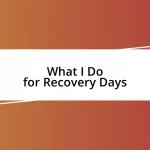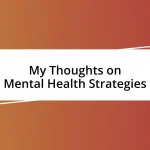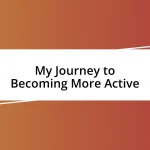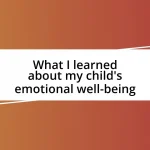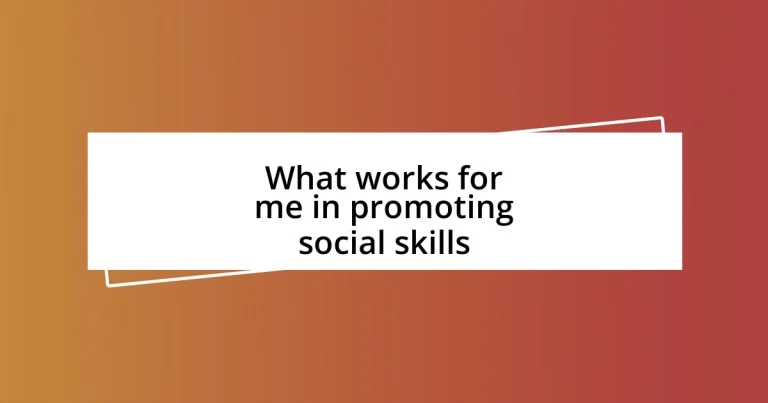Key takeaways:
- Social skills development begins early and evolves through various life stages, emphasizing the need for resilience and vulnerability in relationships.
- Effective communication, including active listening and empathy, is crucial for building trust and fostering collaboration in both personal and professional settings.
- Regular engagement in social situations, seeking feedback, and utilizing specific interaction strategies significantly enhance social skills and relationship-building.
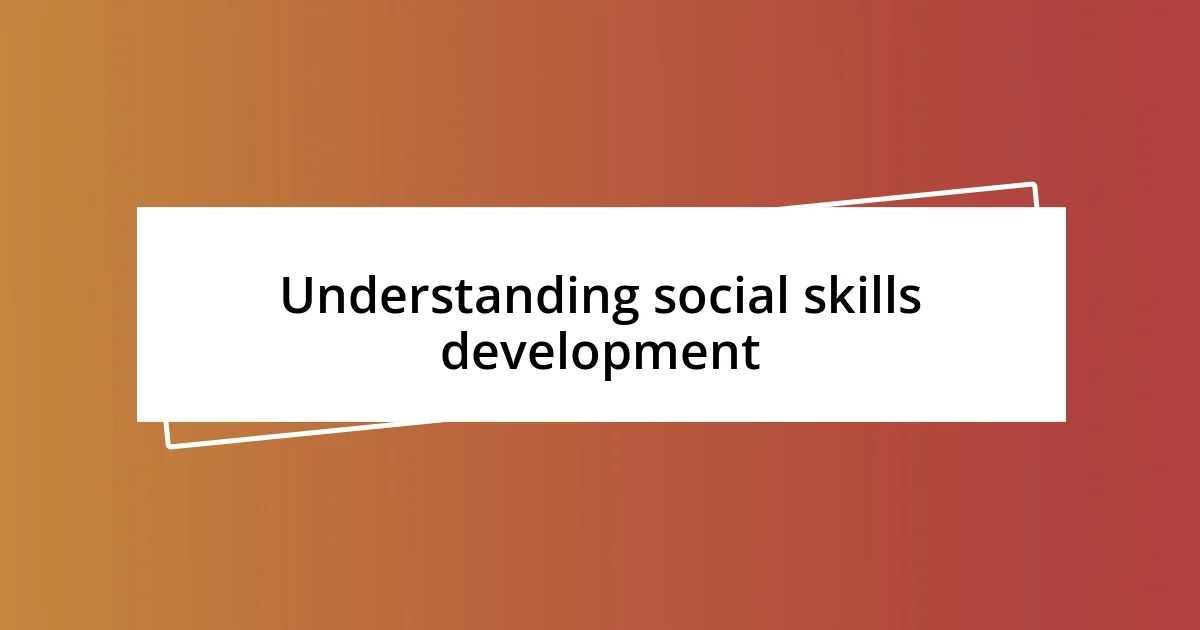
Understanding social skills development
Social skills development is a journey that starts early in life, often beginning with simple interactions like sharing toys or making eye contact. I still vividly remember my first days at school; the nervous excitement I felt when attempting to make new friends was overwhelming yet thrilling. Have you ever wondered how those initial interactions shape our future relationships?
As we grow, the complexity of our social skills deepens. I once found myself struggling during group projects, where effective communication became critical. It wasn’t just about exchanging ideas; I learned the importance of actively listening and responding empathetically. Reflecting on those experiences, I see how essential these skills are for fostering meaningful connections.
Advancing through different stages—childhood, adolescence, and adulthood—each phase presents unique challenges and opportunities for honing our social skills. For instance, navigating the social landscape in high school was a whirlwind of emotions and dynamics. I often felt lost in the crowd, but those experiences taught me resilience and the power of vulnerability in friendships. Isn’t it fascinating how our social skills evolve based on the environments we encounter?
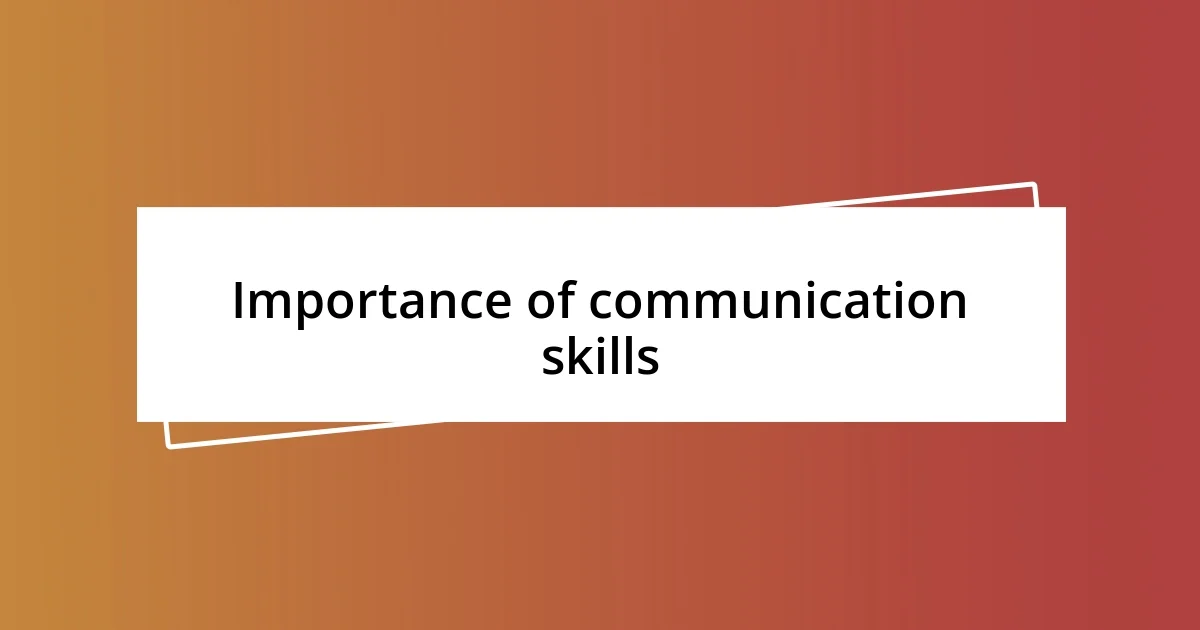
Importance of communication skills
The importance of communication skills cannot be overstated. I recall a moment during a team presentation in college where I felt completely unprepared. My anxiety clouded my ability to articulate my thoughts clearly, leaving my peers confused about my ideas. That experience reinforced for me how crucial effective communication is—not just for sharing information, but also for building trust and creating clarity among colleagues.
As I navigated various professional environments, I noticed a direct correlation between strong communication skills and successful collaborations. I had a mentor who excelled in articulating complex concepts in simple terms, making everyone feel included and valued. This taught me that the ability to communicate effectively enhances teamwork and fosters an environment where everyone feels empowered to contribute.
Reflecting on my experiences, I’ve realized that communication skills are not solely about speaking well; they encompass listening, understanding body language, and expressing empathy. During a challenging time in my own life, I leaned on friends who knew how to listen without judgment. Their ability to communicate supportively was a reminder of how vital these skills are in both personal and professional relationships.
| Aspect | Impact |
|---|---|
| Speaking Skills | Clear articulation of thoughts |
| Listening Skills | Improved understanding and connection |
| Body Language | Enhanced emotional engagement |
| Empathy | Fostering supportive relationships |
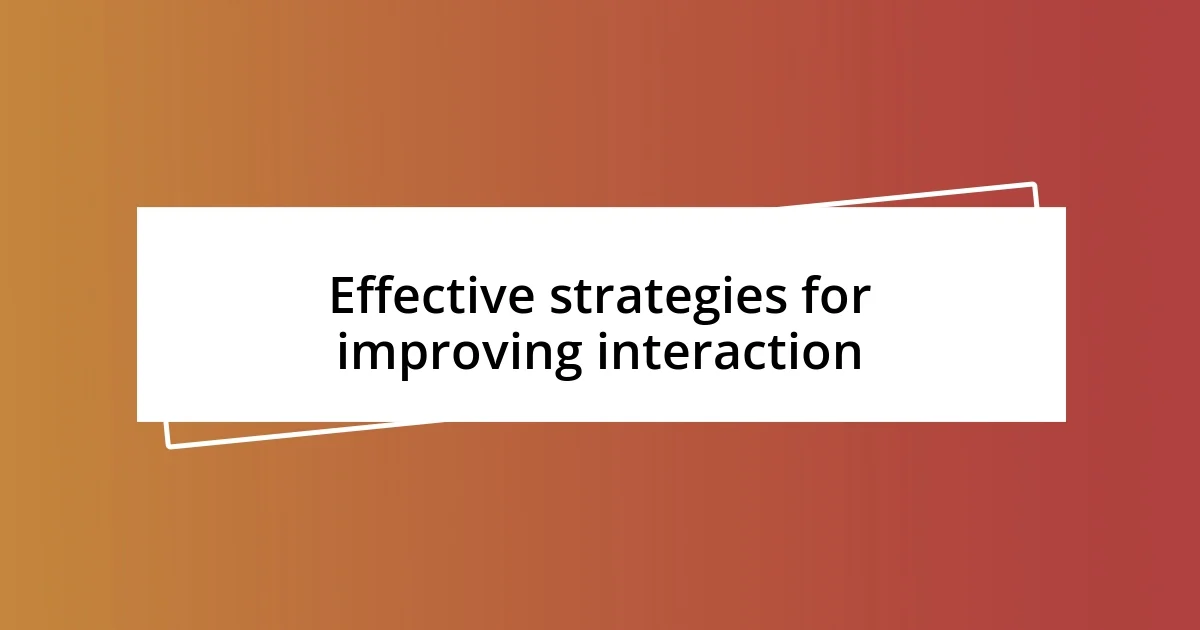
Effective strategies for improving interaction
Improving interaction is a vital aspect of enhancing social skills, and I’ve found that specific strategies can make a big difference. For instance, initiating conversations can be daunting, but I’ve found that starting with open-ended questions helps break the ice. I remember a time when I asked a colleague about their weekend plans, which led to an engaging discussion that opened the door for future interactions. It’s amazing how a simple question can lead to deeper connections.
Here are some effective strategies I’ve employed to improve interaction:
- Practice active listening: Show genuine interest in what others are saying, nodding or providing verbal affirmations.
- Be mindful of body language: Maintain eye contact and use open gestures to convey openness.
- Share personal stories: Relating experiences can foster a sense of trust and camaraderie.
- Embrace vulnerability: Opening up about your own struggles can encourage others to do the same.
- Engage in group activities: Participating in team-based tasks allows for natural interaction and collaboration.
Each technique comes from my own journey of connecting with others, and I’ve seen firsthand how they can transform conversations into meaningful exchanges.
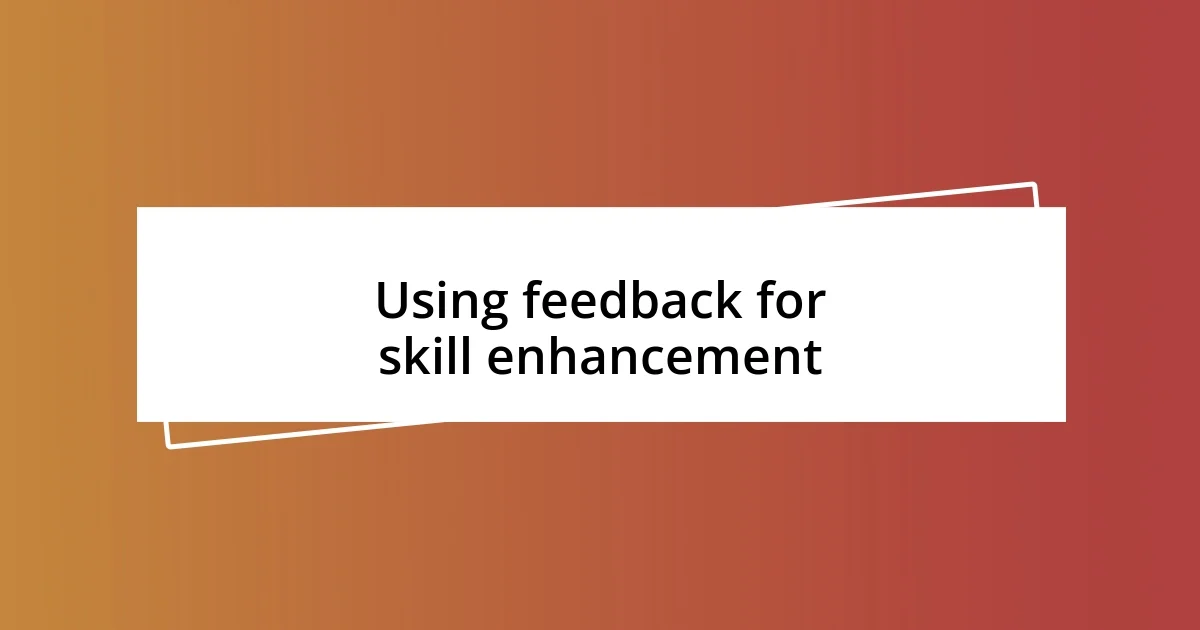
Using feedback for skill enhancement
Feedback has been a game changer in my journey towards enhancing social skills. I remember a time in a group project when a teammate pointed out my tendency to interrupt. At first, I was defensive, but upon reflection, I realized this feedback was an opportunity for growth. By consciously reminding myself to listen more, I not only improved my interactions but also deepened my connections with others.
Receiving constructive criticism can sometimes feel tough, but embracing it is essential for development. I recall attending a workshop where peers provided input on my communication style. Their observations helped me become aware of my nervous habits, like fidgeting and avoiding eye contact. Addressing these small but impactful behaviors transformed my confidence in social settings. Isn’t it fascinating how even minor adjustments can lead to significant improvements in how we relate to others?
I’ve learned that requesting feedback can also enhance my social skills. In a recent networking event, I asked several attendees how I came across during conversations. Their insights illuminated areas for improvement and reinforced the idea that growth is a continuous process. This practice not only helps me refine my skills but often provides reassurance that I’m on the right track. After all, who doesn’t appreciate a little guidance on their journey to better communication?
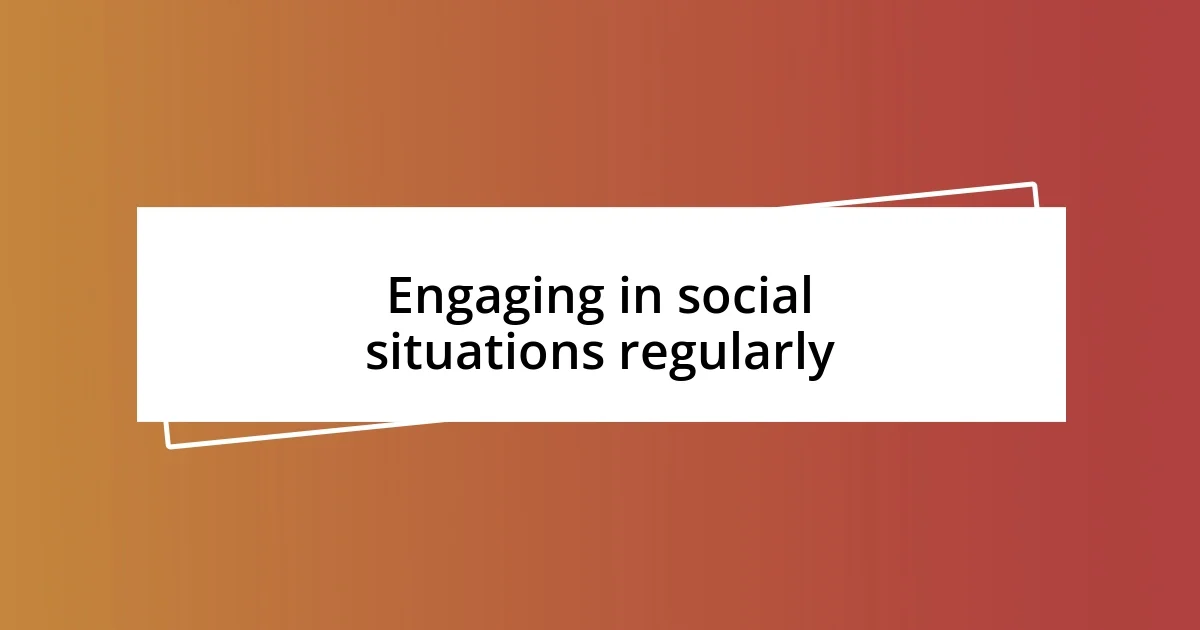
Engaging in social situations regularly
Engaging in social situations regularly has been pivotal for my development. I remember joining a local book club, initially feeling nervous about interacting with new people. However, as I attended weekly meetings, I began to notice how my comfort level increased as familiar faces became part of my routine. Have you ever found a group that turned into a safe space for you? For me, these gatherings not only helped sharpen my social skills but also enriched my life with diverse perspectives.
Participating in community events has also been incredibly beneficial. At a recent volunteer project, I was both excited and apprehensive about meeting a group of strangers, but I jumped in with a positive mindset. As we worked together, it became clear that shared tasks foster connection effortlessly. I can’t help but think about how meaningful it is when we unite for a common cause. Each experience has reinforced that regular social engagement is like a workout for our social muscles—strengthening our ability to connect, empathize, and communicate.
In my own journey, I’ve realized that even a solitary effort can lead to fuller social experiences. There was a season when I started inviting neighbors over for casual gatherings, and it was eye-opening. Those simple moments over snacks and laughter have formed unexpected ties among us. Isn’t it interesting how putting ourselves out there can create a community around us? Regular engagement has transformed my perception of socializing from being a chore to a doorway to richer relationships.
